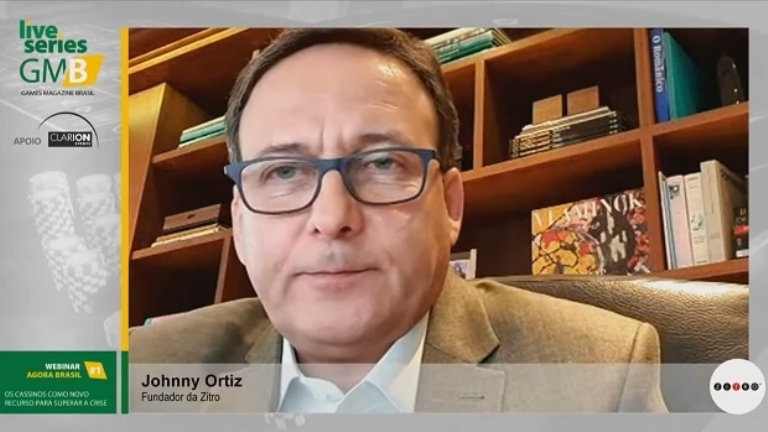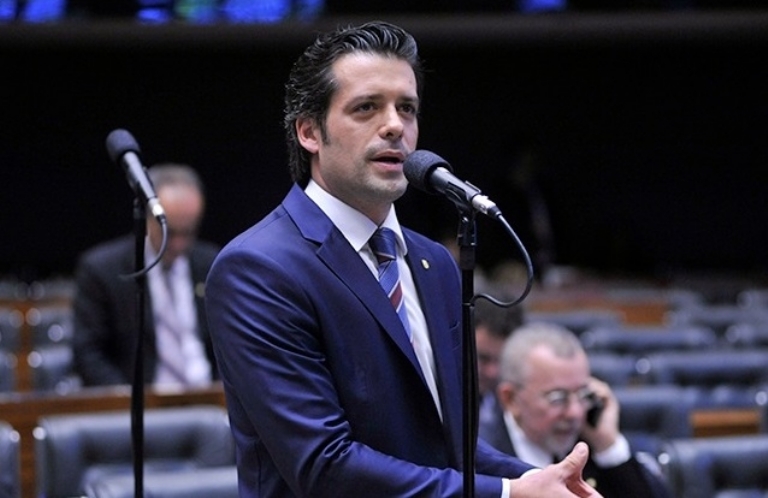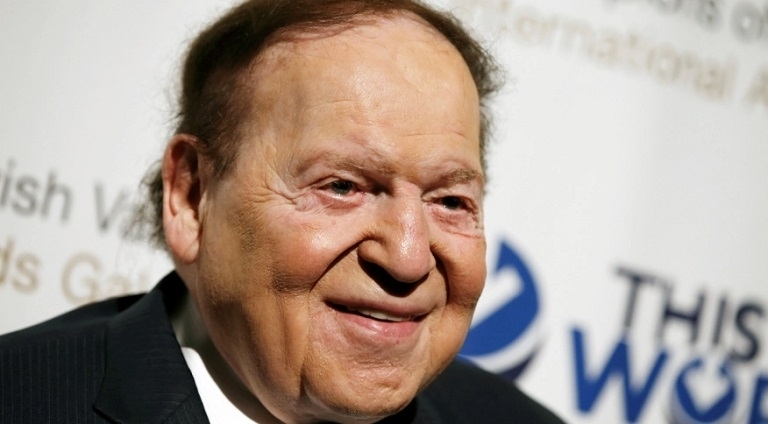

The discussion on the liberalization of gaming in Brazil triggered, in Congress, a war between lobbies of foreign groups that own resorts, on the one hand, and businessmen interested in the exploitation of casinos, bingos and jogo do bicho, on the other. The conflict is related to the scope of legislation passed in the House and which is currently under consideration in the Senate.
A group, which brings together North American businessmen interested in investing in Brazil, wants Congress to allow the installation only of casinos integrated with resorts. Another, with representatives of national companies and associations linked to the sector, wants a broad law that serves as a new regulatory framework for gaming in Brazil.
The proposal approved in the Chamber is a mixture of the two lobbies. It allows for the exploration of bingo and jogo do bicho, but provides for the exclusivity of casinos in the integrated resort model, with hotels, bars, shops and lounges for social events. In the Senate, there is a tendency that the proposal is reduced and meets the lobby of foreign companies that promise billionaire investments in the electoral strongholds of politicians.
The first attempt to approve the regulatory framework for gaming in Congress began in 2016. At the time, the then Speaker of the Chamber, Rodrigo Maia (PSDB-RJ), created a special commission to discuss the best way to legalize gaming in the country.

The rapporteur was Deputy Guilherme Mussi (PP-SP), close to businessman Johnny Ortiz, who in 2007 created the company Zitro International, which develops online games and slot machines.
The Ortiz group is one of the largest in the sector, with the main factory in Spain, and operating in more than 40 countries. To Folha, Ortiz denied that he had articulated with parliamentarians the approval of the proposal that frees up gaming. "I haven't talked to politicians. Maybe [they know me] through the company, especially because I'm Brazilian. But I've lived outside Brazil for many years," he said.
He confirmed, however, that he explained to Mussi about the characteristics of the sector before the deputy prepared the proposal report. "There's no doubt that I know [deputy Guilherme Mussi]. I've known his father for over 30 years. I go to Brazil twice a year. When he was rapporteur, I talked [about the legalization of gambling] to him understand the gaming market."
Mussi confirmed that he spoke with the businessman during the period of construction of the final report of the proposal. "I talked to him as I talked to several entrepreneurs in the segment. I talked to the Fertitta brothers, to Sheldon [Sheldon Adelson, North American businessman in the gaming sector], and to Johnny [Ortiz] too, I talked when I was the rapporteur. Nothing very relevant that I haven't talked to others as well, always in the open."

The Ortiz family supplied slot machines to bingo halls in Brazil until 2004, when the Lula government banned the exploitation of the equipment. Johnny decided to continue business abroad. The departure from Brazil was turbulent. The Ortiz were investigated by the Federal Police for allegedly laundering cocaine trafficking money for the Italian Mafia Cosa Nostra. The investigation was opened after a request for cooperation from the Italian police, which found evidence of the Ortiz family's connection with the mafia. Without indicting anyone, the investigation was shelved in 2003.
They were also targeted by the Senate Bingos CPI in 2006. The final investigation report reinforced the money laundering charges but did not indict the Ortiz. The Civil Police of Rio de Janeiro also opened an investigation as a result of the CPI, which ended up shelved months later. "There are many people investigated in Brazil; more than me, it's impossible. [Ministry of] Finance, Federal Police, Civil Police: they all investigated and found nothing," Johnny said.
In Congress, Brazil’s Legal Gaming Institute (IJL) is responsible for trying to convince parliamentarians to approve the release of gaming. "This market is very aggressive, it moves a lot of money. A good part [of the relationship between gaming and crime] is the fault of the Brazilian Legislature and Executive. They have to admit the failure of the prohibitive model. Gaming completed 80 years of ban, but it did not stop the growth of the sector, which moves R$ 27 billion per year," the president of the institute, Magno José Sousa, told Folha.
PRESSURE FROM FOREIGN GIANTS HAS STOPPED PROCESSING
Despite the efforts of the pro-legalization wing, the proposal got stuck in Congress in 2016 with the arrival of large foreign corporations in the discussion, at the beginning of the lobbies war. At the time, the Las Vegas Sands (LVS) group, which has seven large resorts integrated with casinos in Las Vegas, Singapore and Macau, sought out members of the Michel Temer government and important congressmen, such as Rodrigo Maia, to present investment plans in Brazil.
The founder of the LVS group, magnate Sheldon Adelson, was close to former US President Donald Trump and gained political influence during the Republican administration. Adelson met Jair Bolsonaro and Economy Minister Paulo Guedes for the first time in May 2018 at Copacabana Palace. In the conversation, he said he would be willing to build a casino-resort in Rio de Janeiro, with an investment of US$ 15 billion.
The demand presented by the founder of Las Vegas Sands was for Brazil to pass a law that would only allow the installation of casinos integrated into resorts, without legalizing other types of gaming or urban casinos, according to deputies and presidential advisers to Folha.
In Brazil, LVS has the help of Lowenthal Advogados and the company GR8 Capital Consultoria, owned by Henry Lowenthal, responsible for bringing the Las Vegas group closer to members of the Legislative and Executive. The Lowenthal family brokered Las Vegas Sands meetings with Brazilian authorities and politicians, such as former Minister of Tourism Marcelo Álvaro Antônio.

In January 2020, they also organized the meeting of a Brazilian delegation with representatives of the LVS, in Las Vegas. Senators Flávio Bolsonaro (PL-RJ) and Irajá Abreu (PSD-TO), deputy Hélio Lopes (PL-RJ) and the then president of Embratur, Gilson Machado, participated.
The purpose of the meeting was to discuss the possible investment of the LVS group in Brazil, with the approval of an exclusive law for casinos. After the official trip to visit the casinos, Irajá presented a bill to authorize the installation of integrated resorts in the country. Irajá is one of the main candidates to report on the regulatory framework for gaming in the Senate. One of the possibilities studied in the House is to add the proposal of the senator from Tocantins to the project approved by the Chamber.
Even denying the influence of the international lobby, the senator says that, if chosen as rapporteur, he will reduce the proposal to the legalization of casino-resorts only. "It's the model I've always defended. If I have the opportunity and trust from my colleagues and [Senate President Rodrigo] Pacheco (PSD-MG) to report the matter, my intention is to be open to other fronts, but mine conviction is that the casino-resort model is the most suitable for Brazil." The president of the Senate Constitution and Justice Committee, Davi Alcolumbre (União-AP), is also quoted for the rapporteurship.
Johnny Ortiz criticizes the fact that the Las Vegas Sands group promises billionaire investments and changes the course of discussions with a strong lobby in the Planalto Palace. “[Sheldon Adelson] is very strong in the US, in Macau, but he has to adapt to the country's legislation. He thought that when he arrived in Brazil, a Tupiniquim country, he could do whatever he wanted by offering billions of dollars in the construction of the casino. That's why he wanted small legislation [only for casino resorts]," he said.
Sheldon Adelson died on January 11, 2021, from complications from lymphoma. Lowenthal Advogados was contacted, but did not respond. "The death of Adelson and the financial crisis that integrated resorts went through in the pandemic reduced lobbying – and the reduction of lobbying shows that these large corporations do not have the cash to support this business model. It is not sustainable," said the president of the IJL.
The proposal approved by the Chamber in February authorizes the operation of the jogo do bicho, bingo, online games and turf [horse racing]. The text also allows the exclusive operation of casinos integrated with resorts, with hotels, auditoriums, bars and shopping centers.
The report also makes it possible to create 10 casinos on ships throughout Brazil. Establishments must be located on rivers of at least 1,500 km in length. Rodrigo Pacheco has argued that the Senate has other voting priorities this year, such as tax reform. One possibility is that the games proposal will be voted on in November or December, after the elections, a period that has been called the "window of opportunity."
In addition to the casino lobby, the jogo do bicho also began to articulate around the proposal. The offenders who run the activity in Sao Paulo are in favor of legalizing the practice, but are asking for changes in relation to the proposal approved in the Chamber. The main demand is the granting of an amnesty – which, in their opinion, could provide security for the maintenance of the games.
To advance with the regulatory framework for the gaming, the president of the Chamber, Arthur Lira (PP-AL), had to overcome resistance in the evangelical bench. In 2021, the bench –represented by deputy Cezinha de Madureira (PSD-SP)– told Lira that it would only stop obstructing the vote if the president ruled a PEC that exempts religious temples from paying IPTU.
The agreement was closed on December 16, 2021. On the same day, the House plenary approved, in two rounds, the proposal that was of interest to the evangelical bench and the casino project gained an urgency regime, which speeds up the processing in Congress.
Although most games of chance are not regulated in Brazil, there are modalities that are authorized by the federal government. Caixa's lotteries, for example, bring together more than 10 types of bets. In 2021, the sales volume of games was the highest in history, with a collection of R$ 18.5 million – an amount 8.2% higher than the previous year.
Sports betting sites have also grown in the country, although the Bolsonaro government has not yet regulated, by decree, the functioning of the market in Brazil. With the legal vacuum, platforms are able to operate in Brazil based abroad, without paying taxes to the Brazilian government.
Source: Folha